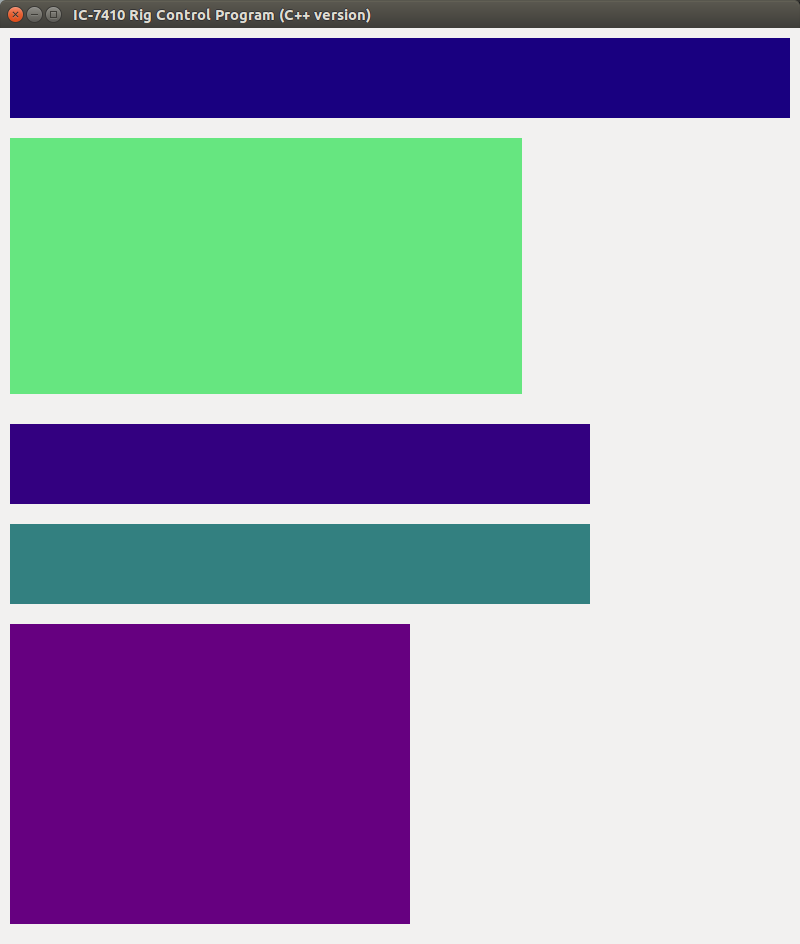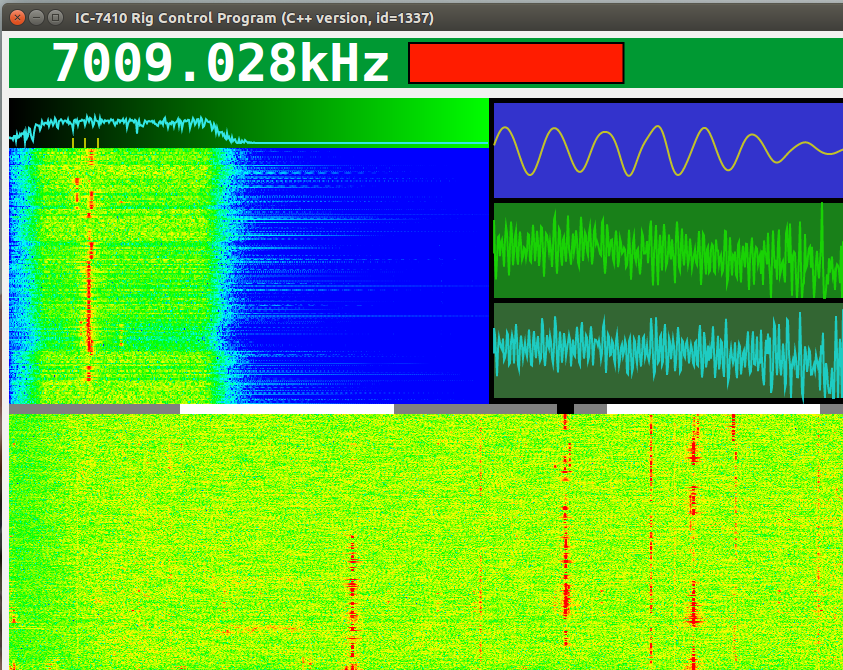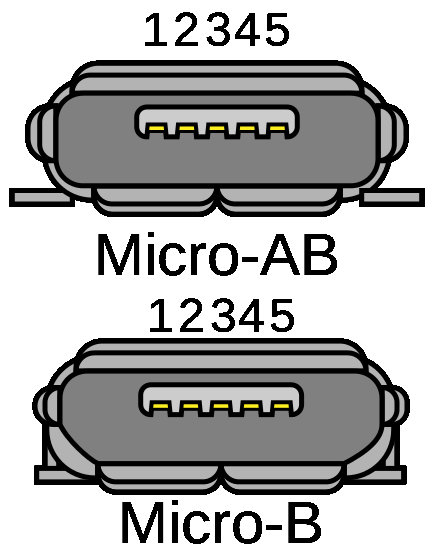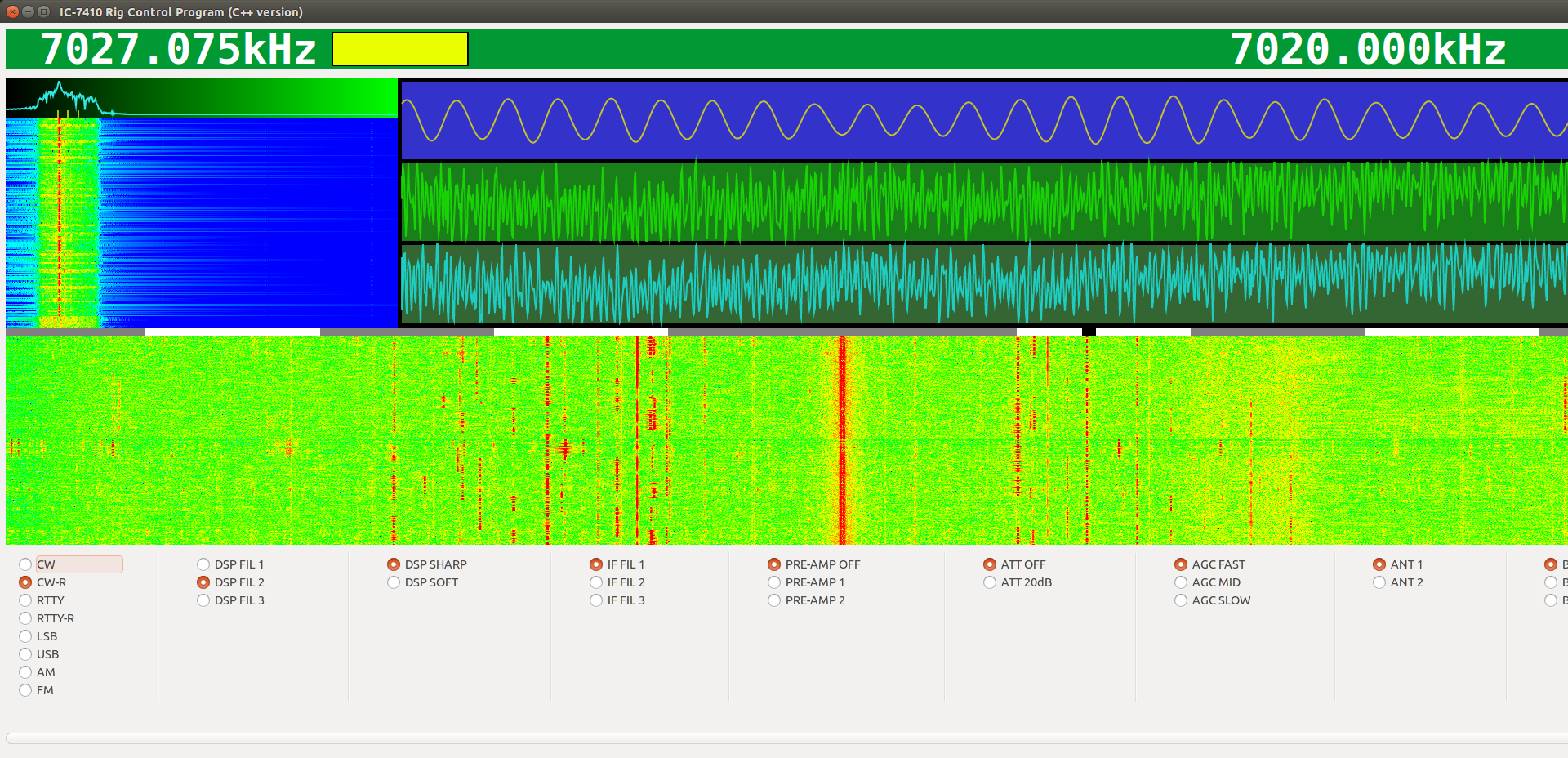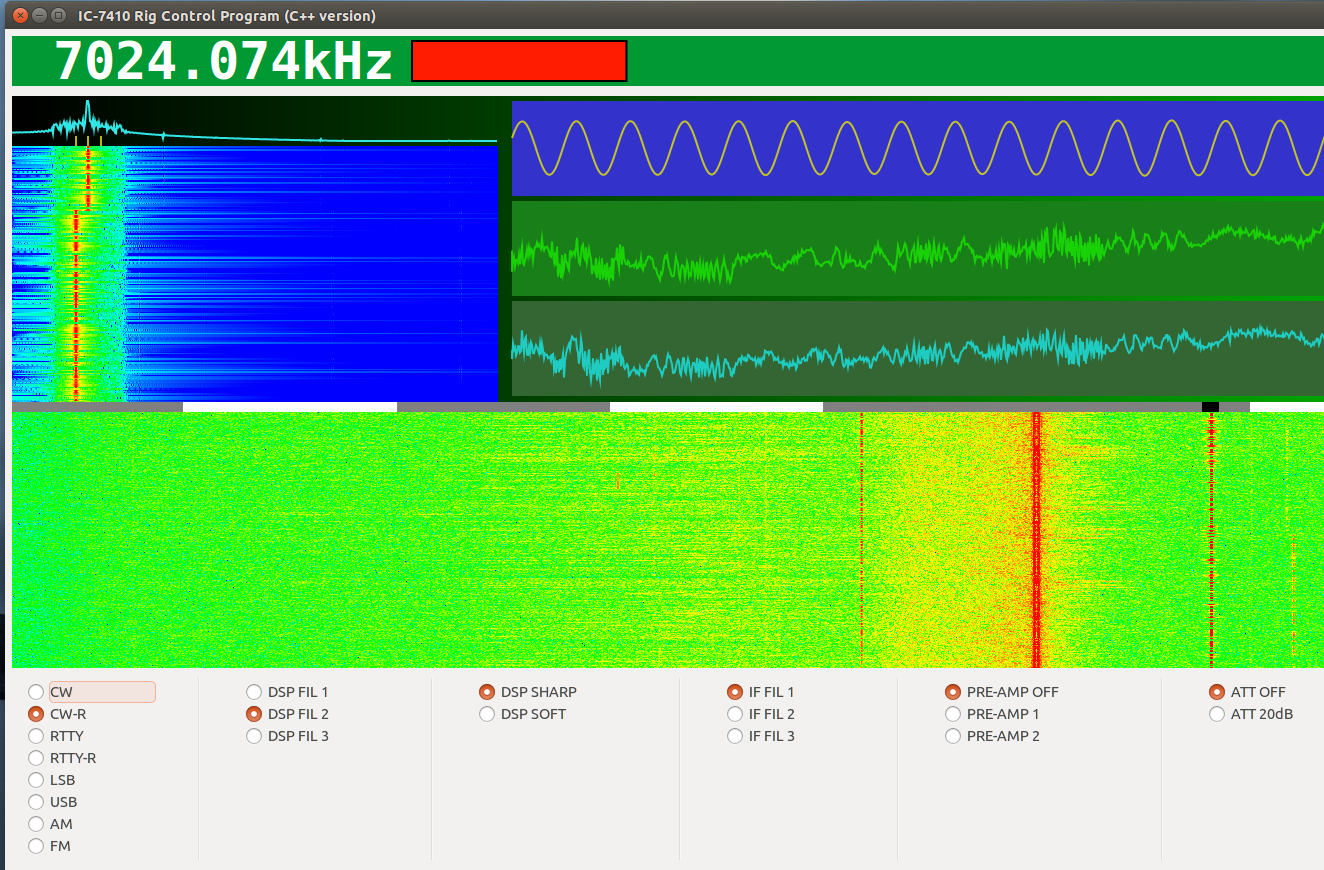The colored boxes are the areas for waveform (mono) and waterfall of IC7410, and waveform (I and Q) and waterfall of Soft66LC4.
NewSound *mynewsound[2];
vector<NewSound*> newusblist;
int main(int argc, char *argv[])
{
mynewsound[0] = new SoundIC7410{argv[1]}; /* IC-7410 */
mynewsound[1] = new SoundSoft66{argv[2]}; /* Soft66LC4 */
for(int i=0;i<2;i++) {
newusblist.push_back(mynewsound[i]);
}
argc = 1; /* just for the next line */
Glib::RefPtr < Gtk::Application > app = Gtk::Application::create(argc, argv, "org.gtkmm.example");
Gtk::Window mywindow;
Gtk::VBox mybox;
MyDrawingArea *aaa;
mywindow.set_title("IC-7410 Rig Control Program (C++ version)");
for(auto x : newusblist) {
aaa = new MyDrawingArea(x);
mybox.pack_start(*aaa, FALSE, FALSE, 0);
}
mywindow.add(mybox);
mywindow.show_all();
return app->run(mywindow);
}
class NewSound : public Gtk::Box {
public:
virtual int waveform_nsamples () const = 0;
virtual int waveform_nchannels() const = 0;
virtual int waterfall_nfft () const = 0;
virtual int waterfall_ntime () const = 0;
virtual ~NewSound();
};
struct AlsaParams { // Advanced Linux Sound Architecture
// ...
};
class SoundIC7410 : public NewSound, protected AlsaParams {
public:
SoundIC7410();
SoundIC7410(char *s);
virtual ~SoundIC7410();
int waveform_nsamples () const override {return 800;};
int waveform_nchannels() const override {return 1;};
int waterfall_nfft () const override {return 512;};
int waterfall_ntime () const override {return 256;};
// ...
public:
char* sound_device = nullptr;
// ...
};
class SoundSoft66 : public NewSound, protected AlsaParams {
public:
SoundSoft66();
SoundSoft66(char *s);
virtual ~SoundSoft66();
int waveform_nsamples () const override {return 600;};
int waveform_nchannels() const override {return 2;};
int waterfall_nfft () const override {return 400;};
int waterfall_ntime () const override {return 300;};
// ...
private:
char* sound_device = nullptr;
// ...
};
class MyDrawingArea : public Gtk::DrawingArea {
public:
MyDrawingArea();
MyDrawingArea(NewSound*);
virtual ~MyDrawingArea();
bool on_draw(const Cairo::RefPtr < Cairo::Context > &cr) override;
private:
int count {0};
int nchannels {0};
int nsamples {0};
int nfft {0};
int ntime {0};
};
MyDrawingArea::MyDrawingArea(NewSound *x) : count {0} {
nsamples = x->waveform_nsamples ();
nchannels = x->waveform_nchannels();
nfft = x->waterfall_nfft ();
ntime = x->waterfall_ntime ();
set_size_request(max(nsamples, nfft), 100*nchannels + ntime + 30);
}
MyDrawingArea::~MyDrawingArea() {
// TODO Auto-generated destructor stub
}
bool MyDrawingArea::on_draw(const Cairo::RefPtr<Cairo::Context> &cr) {
cr->save();
for(int iy=0;iy<nchannels;iy++) {
cr->set_source_rgba(0.1*nchannels, 0.5*iy, 0.5, 1.0);
cr->rectangle( 10, 10+100*iy, nsamples - 20, 80);
cr->fill();
cr->stroke();
}
cr->restore();
cr->save();
cr->set_source_rgba(0.4, 0.1*(n%10), 0.5, 1.0);
cr->rectangle(10, 10+100*nchannels, nfft, ntime);
cr->fill();
cr->stroke();
cr->restore();
return true;
}
I am not sure if I am going to the right direction or not.

